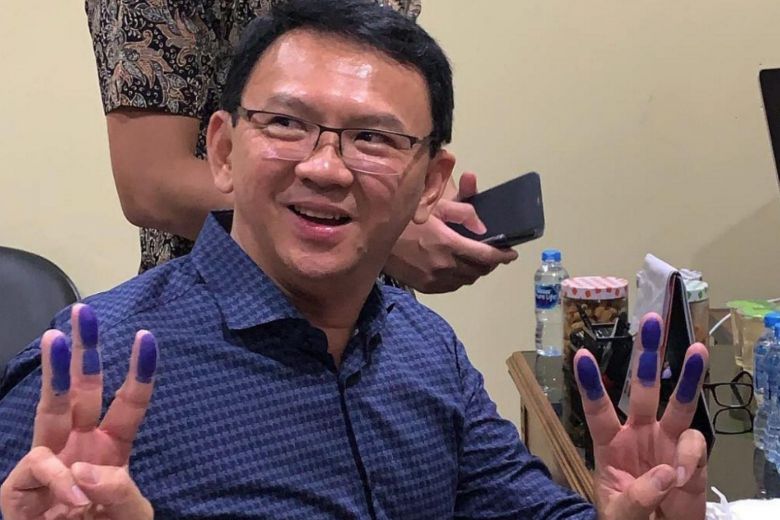Australia/Israel Review
Fake News and consequences
Mar 4, 2019 | Michael Shannon

Indonesian President Joko Widodo (Jokowi) and his challenger Prabowo Subianto both put forward policies based on resource nationalism, addressing the key local concerns of energy, food and infrastructure during their second presidential debate on the evening of Feb. 17. Polls indicate that bread-and-butter issues rate far higher in the national electorate than humanitarian concerns, sectarian tensions, terrorism or corruption.
The candidates entered the debate with steady polling numbers that put Jokowi ahead by more than 20 percentage points (55-31) only two months before polling day. Given Jokowi’s consistent public approval levels for most of his presidential term, it’s hard to envisage a circumstance that would see him fall from grace.
This is all the more remarkable considering Jokowi has been targeted for years by a torrent of fake news disseminated through online channels including Facebook, Twitter and chat applications such as Whatsapp.
Fully half of Indonesia’s 265.4 million population are internet users and almost all of these use social media.
The Asia Sentinel has reported that survey results of the Indonesian Telematics Society show nearly 45% of 1,116 respondents say they receive fake news and hoaxes every day, and that some 30% of respondents say they have difficulty checking the truth of such reports.
Already the target of extensive attacks in 2014, Jokowi has lately been alleged to have been implicated in supposed containers filled with ballots already cast in his favour, as well as supposed electronic transactions associated with debt to China. Other red herrings in circulation include time-worn accusations of Jokowi being a member of the Indonesian Communist Party, of being a closet Christian, of engaging the services of foreign consultants (US Democratic pollster and strategist Stanley Greenberg) and of having a fake high school diploma.
There are also claims that 10 million workers from China have entered Indonesia; and that Jokowi’s vice presidential running mate, lacklustre veteran cleric Ma’ruf Amin, will be replaced by former Jakarta governor Basuki “Ahok” Tjahaja Purnama.
It’s no surprise that Ahok’s name has been deployed in such rumours – he is the highest profile victim of a doctored video that ultimately had him jailed for blaspheming Islam, not to mention an avalanche of vicious online smears that all but spelt out that his chief sin was being both ethnically-Chinese and a Christian.
Ahok himself walked free from prison on Jan. 24 after serving over 20 months of a two-year sentence and has since kept a low profile, issuing only a letter via Twitter conveying with remarkable humility the insights gained during his incarceration. Conveniently for Jokowi, his former ally – who has now dropped his Chinese nickname in favour of his initials “BTP” – will be absent during the election.
While Purnama has accepted speaking engagements in Japan, New Zealand and Europe, and is planning a new YouTube channel named “BTP”, the man who set him up with the doctored video has not paid any price.
Buni Yani, a university lecturer, was found guilty and sentenced to 18 months in prison in November 2017 for violating a section of the country’s cyber law that regulates the changing, adding to, destroying or omitting of electronic information. He appealed the ruling and has not yet served a day in prison. In a farcical twist, he is reportedly now working in the media unit for the presidential election campaign of Prabowo Subianto, who he hopes will be able to keep him out of prison if elected.
The rather pliable legal system is much less kind to those who run afoul of Islamic law, especially in Sharia-ruled Aceh province. Two teenagers were publicly flogged recently after being accused of cuddling in open view. On a raised platform, each received 17 lashes of a rattan cane, as dozens of people watched and took photos outside a mosque in Banda Aceh. The pair had already served 98-day jail sentences.
In May 2017, the first-ever public caning of a couple convicted of gay sex in Aceh drew international media coverage and widespread condemnation. In 2018, then-Aceh Governor Irwandi Yusuf (currently in detention in Jakarta on corruption charges) said he did not want canings to cause “Islamophobia” and Acehnese officials declared that the punishment would be carried out behind prison walls. But the agreement didn’t make clear when the new rule would take effect.
President Widodo last year called for an end to canings, but Aceh’s status as a “special region” with a degree of legal autonomy is the price paid to pacify the area’s former movement for independence.






